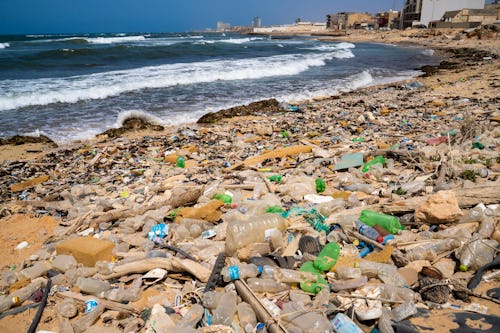
Most of the plastic we use doesn’t get recycled. Instead, it ends up in landfills, where it can take as long as 450 years for it to fully decompose. Engineers and scientists at the University of Texas at Austin may have discovered a potential solution: a new enzyme variant that has a taste for plastic and can break the material down in a matter of hours instead of centuries.
The researchers used a machine-learning model to explore potential mutations of a natural enzyme known as PETase, with the goal of finding a variant that would be capable of degrading polyethylene terephthalate (PET) plastics — the material that makes up the majority of plastic waste generated globally. Everything from soda bottles to food containers to even some clothes contains PET plastics.
The mutant enzyme that scientists settled on has the capability to complete the circular process of plastic decomposition, breaking it down into smaller parts through depolymerization and chemically reassembling them through repolymerization, which allows the material to be reused. The process can be completed in as little as 24 hours.
Another key to the whole process when it comes to protecting the planet: The breakdown of the plastic occurs at low temperatures. When plastic decomposes at a landfill, the material heats up and releases greenhouse gases into the atmosphere. The newly discovered enzyme is capable of breaking down plastic at temperatures under 50 degrees Celsius (122 degrees Fahrenheit), cutting down on the noxious gases released through the process.
We have a lot of plastic waste — about 400 million metric tons produced globally each year, and that number is rising. By 2050, it’s estimated that the creation and decomposition of plastic will account for 15% of all carbon emissions globally. We’re going to have to do something about it. This hungry little enzyme might be our best bet to make sure we don’t drown ourselves in plastic before we even have a chance to save the planet.







